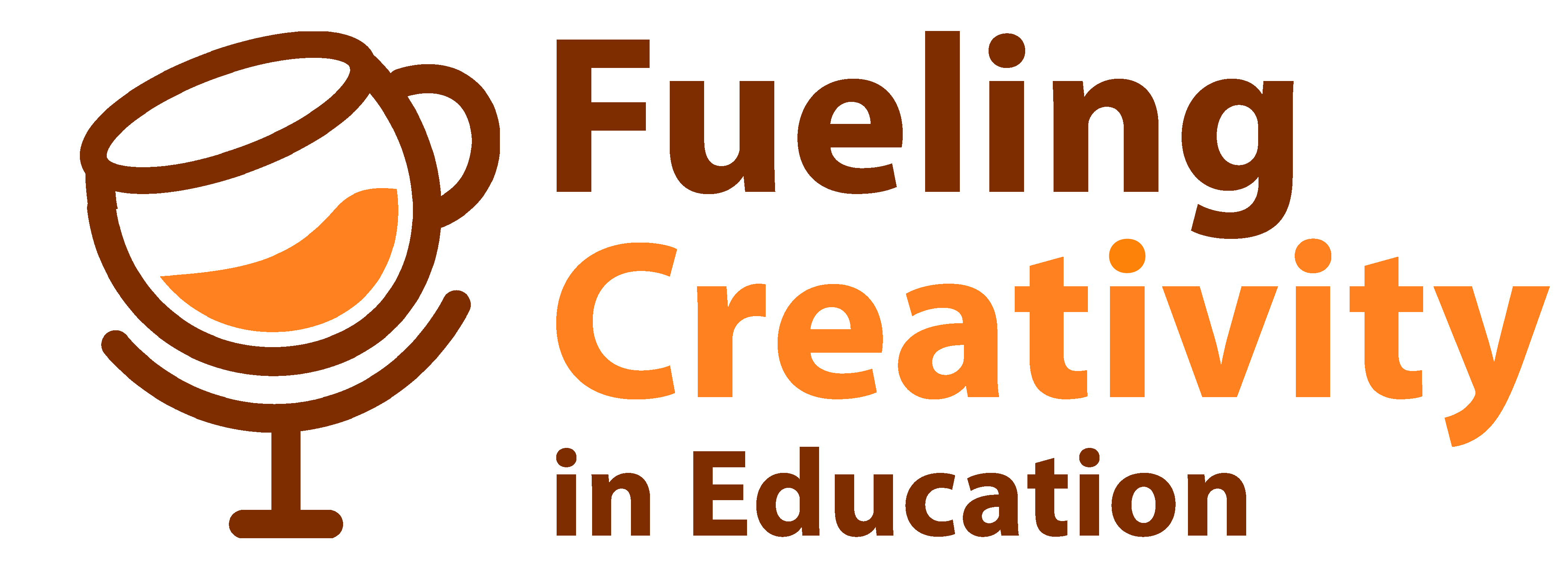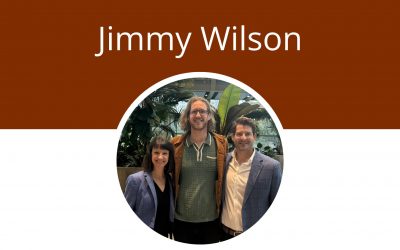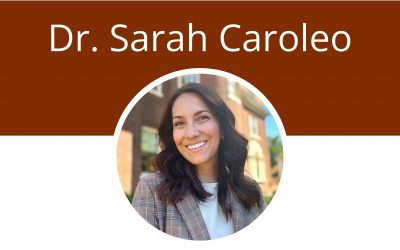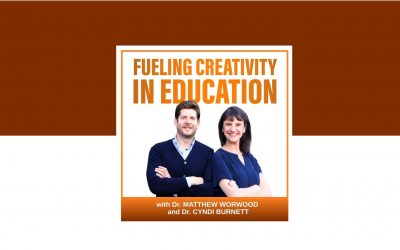Season 9 | Listen & Learn
What Values Do You Express in the Classroom?
– Dr. Kulvarn Atwal
Episode Transcription
Listen and Learn: What values do you express in the classroom?
Matthew Worwood:
Hello, everyone. My name is Dr. Matthew Worwood.
Cyndi Burnett:
And my name is Dr. Cindy Burnett.
Matthew Worwood:
This is the Fuelling Creativity in Education podcast.
Cyndi Burnett:
On this podcast, we’ll be talking about various creativity topics and how they relate to the field of education.
Matthew Worwood:
We’ll be talking with scholars, educators and resident experts about their work, challenges they face, and exploring new perspectives of creativity.
Cyndi Burnett:
All with a goal to help fuel a more rich and informed discussion that provides teachers, administrators and emerging scholars with the information they need to infuse creativity into teaching and learning.
Matthew Worwood:
So let’s begin. Hello and welcome back to our third episode in our winter 2025 listen and learn series. And as a reminder, these are super short episodes designed to support professional learning.
Cyndi Burnett:
Our goal in this series is to provide a quote from a creativity researcher or educator that we interviewed on season one of the Feeling, Creativity and Education podcast. We would like to play this quote and then provide you with some questions to use with your professional learning community as a point of discussion. Now, if you don’t have a professional learning community, then you can come join ours at Curiosity2Connect.
Matthew Worwood:
And as a reminder, we are going to be doing our best to connect these conversations to our 10 actions for fueling creativity in education. And hopefully you’ll see that with some of the conversation that we facilitate after the quote. So, Cindy, this one is your clip.
Cyndi Burnett:
This is a clip from Dr. Kulvarn Atwal, who we interviewed not just once, but twice, because the first interview we did with him was about the thinking school and the second one was about the thinking teacher. So if you haven’t heard Kulvarn’s episodes, go and listen to them because they’re fabulous. Now, Kulvarn is a headteacher, and he was a headteacher for nine years at a school he attended as a child. And in 2018 and 19, he was the executive headteacher of two primary schools, both of which were graded outstanding in all areas by Ofsted. So clearly British. And so we’re going to give you a little clip of Kulvarn and I think you’re really going to enjoy it.
Kulvarn Atwal:
I’ll give you an example. I went into. There’s a. Currently head of two schools and I was. I’ve been in the second school for about 15 months and the school had been told it’s requiring improvement by Ofsted. Now, when I first went into the school, the culture was everybody has to do the same thing because that’s what they think consistency is. That is not consistency. Consistency is consistency of values, consistency of expectations, consistency of aspirations, not consistency.
Kulvarn Atwal:
We do the same thing because you’re not going to get the outcomes for the children. There were 20 classes in the what we call key stage two, which is like your grade three to six. Every class had the children sitting in rows, in pairs, facing the front, and almost all of them were in silence. And after a while, I went through and I thought, these are environments which are stifling dialogue, stifling creativity. I asked the teacher, why have you got them in rows like this? He didn’t know. And I said, but they can only talk to the person next to them. They can’t talk to anybody else. And so rather than going in and saying, right, this.
Kulvarn Atwal:
This has got to change. Everyone’s got to do this differently. I invited all 20 of those teachers on the Friday afternoon. I said, listen, guys, on Monday, you don’t have to have your children in rows. If you want to have your children in rows and it’s really working for you, do it. If you don’t, you want to have them in tables or groups or horseshoe. Whatever you want to do, you can do. How many of those 20 teachers still had those children sitting in rows? Not one.
Cyndi Burnett:
Now, this quote really focuses in on the strategy that we have, which is ask questions. So when we talk about asking questions, we’re not just referring to students asking more questions, but for teachers and administrators to ask questions and question assumptions. So when you see things in your school or your classroom environment, say, why? Why are we doing this? So one of the things I really liked about Colin’s episode was talking about values and expectations. So, Matt, I’m really curious. What are some of the values that you hold as a creative educator in your classroom?
Matthew Worwood:
I think flexibility is one I’ve recognized and learned to. Because the reason why I paused is that it’s a case of there’s different pieces here. You know, it’s values within the learning experience. There’s values that you hold within your practice as a teacher. And within those, I would say there’s expectations that you have. So, for example, I value freedom and the capacity to, I suppose, choose how I want to deliver a particular learning objective and instruct in the way that I feel comfortable instructing. I recognize that that’s going to be different for different people, but that’s a value that I have. But in terms of my practice, I would say that I have.
Matthew Worwood:
I express the value of flexibility. If something isn’t working, I look to give myself the flexibility to change it, to mix it up, to recognize that when I’m trying something new, it isn’t going to work. It Might not work all the time. And that’s something that I’ve consistently done. And I think, for the most part, students have typically responded in a positive way, particularly when it’s not working, they’re, okay, let’s mix it up. Let’s change it. And I think in order for you to express that value as well, you need to be very receptive to that environment, feedback from the students, and other formative methods of assessment.
Cyndi Burnett:
I love that response, Matt. And I definitely see in our conversations that you value flexibility. And I think for those of you listening, it’s important to have these conversations with the people that you work with within the school culture. I know most schools have their own set of values and to really look at those values as. And say, are we doing this in the classroom? So, for example, I was working with a school and their value. One of their core values was individual excellence, which. I love that phrase, individual excellence. And when you really look at the school and what’s happening inside, are they trying to make each student really excel? So look at your core values as a school, and then look at what’s happening in your classroom, and then look at what you value as an educator, and then look at your classroom and see where those values align or where they don’t align.
Cyndi Burnett:
Now, my second question, Matt, is what are your expectations that you have of your students? What are some of the expectations you have?
Matthew Worwood:
I think commitment, a commitment to the learning experience. And I think so long as I feel that students are making a commitment to that and their professional growth and personal growth, then I don’t think I have any other expectations than that. I think that’s my. That’s my only expectation that I realized that I have. And I’d go as far as saying it’s become a value as well. I value an environment, a classroom environment where there is a commitment to learning. And now I’m kind of bouncing around. And I think, yes, you’re right.
Matthew Worwood:
You see the flexibility that I like to explore. But that is also part of having a conversation. Right. With colleagues, is that we might bounce around a little bit. But I think it was really important that you referenced the fact that you can have values of a school and then you can have values as yourself, as an educator. And then, of course, you have values that you’re hoping to be expressed within the curriculum and what you’re hoping to see from students as well. And I think that’s all part of this conversation. But going back to be very clear, commitment to learning, you do that.
Matthew Worwood:
I’m Fine.
Cyndi Burnett:
And one of the things I love to do with my students in the beginning of the semester is create a contract to say, what are all the expectations that we have of this class together? And then have everyone sign it. So you can do this with younger students in elementary school, you could do this with college students, but to really have a clear understanding of the expectations of being in a classroom together and how you’re going to work collaboratively together. So, yes, having a commitment to learning and being on time and making sure you really listen to one another and really to be aware of other people’s feelings and all those sorts of things. So if you’re interested in that, I actually have a YouTube video on this, Matt, that I’ link in the show notes on how to do a values and expectations contract with your students at the start of the year.
Matthew Worwood:
I love that as well. And I know sometimes, you know, this is a little bit sometimes in higher education, but we quite often have participation grades, right? And we talk a lot about participation grades. I would say that talking about values, my participation grade expresses my values for my expectations. And I certainly agree that. That having a conversation about what the students expect from this class is also important because you also get that chance to see where there might be some disconnect sometimes, because ultimately we can reduce tension, misunderstanding, potential feelings, negative feelings, if we can align our values a little bit, or at the very least, this is what the students value from this class. This is what I value from student participation. So I think the values contract sounds absolutely brilliant. And if you are familiar with participation grade, I definitely would get you to revisit your criteria for the participation grade a little bit because that typically is where you can express your values there.
Matthew Worwood:
Do you want to bring more creative and critical thinking into your school? Look no further than our podcast sponsor, Curiosity to Create.
Cyndi Burnett:
Curiosity to Create is a nonprofit organization dedicated to engaging professional development for school districts and empowering educators through online courses and personal coaching.
Matthew Worwood:
And if you’re craving a community of creative educators who love new ideas, don’t miss out on their creative thinking network. Get access to monthly webinars, creative lesson plans, and a supportive community, all focused on fostering creativity in the classroom.
Cyndi Burnett:
To learn more, check out curiositytocreate.org or check out the links in the show notes for this episode. So the final thing is, and this is just a general note, is just to spend some time as a group or community asking why? And generate a list of questions and set the premise that you’re not going to judge each other’s questions and that you’re going to keep open to those questions and just generate a big list of questions of why do we do this? Why do we have pajama day? Why does every day in December need to be a holiday day? Why? Why don’t we celebrate more of this or that? Why don’t we give an award for this? Why? You know, all those why questions to really spend some time just asking those questions. Because again, this one comes back to the strategy of ask questions. So question your assumptions, even if they seem silly. Why do we have students use pencils instead of pens? Why do you know, it’s sort of just fun to even play around. And it can be a little bit comical if you say, you know, when things come up as educators, to laugh as well, when you’re generating these questions. And what’s really important here is that you just stop and reflect. And if what is working is best for you and best for your students, is that going to be effective for your students? Why are we doing that? Right? Because I think so often we hit.
Cyndi Burnett:
We wake up in the morning. I don’t know about you, Matt, but I hit autopilot. It’s like, I wake up, I stand up, I say, it’s going to be a great day. I brush my teeth, I go out, I get my coffee. And you know, like, you hit autopilot and you just go through your day without really questioning why. So really think about those things that are happening inside your classroom where you can ask why.
Matthew Worwood:
I love that. And I do want to make a quick connection to your earlier questions. I my participation grade changed because I said, why am I having a participation grade? I knew there was a connection to attendance, but, you know, we can’t grade on attendance at the University of Connecticut. So I had to look at this and I had to say, why do I have participation? You know, what’s the value of participation? And that’s how I came about with things like commitment to learning as express, expressed through. And then I look at how I’m going to observe that commitment of learning throughout the semester. And that came about from a why question. And likewise, at the moment, as I’m starting to revamp my curriculum, one of the courses I’ve now taught, I think for about four or five semesters, and I’m starting to say, why am I still doing journals? And that by asking, why am I still doing journals? I’m now on a journey and believe it or not, I’m going to stick with journals. But the journals have now changed a little bit, because my values have altered slightly with the consequence of things like generative AI.
Matthew Worwood:
So I love that. Asking why of your environment, asking why of your curriculum, and asking why you believe or think in the way you do.
Cyndi Burnett :
And I will also build on that participation idea. Matt, I was talking with the teacher, and she said, you know, participation looks different for different students. Right. You have a really quiet student. They’re not going to be very verbal in terms of sharing. They might be more reluctant to share. You have extroverts who are very willing to raise their hands and ask questions. So one of the things that this teacher does, a shout out to Mrs.
Cyndi Burnett:
O’Keeffe, who might be listening, is she asked the students at the start of the year, what does participation look like to you? And how will I know that you’re participating? And what should I do if I think you are not participating? And I think what’s really interesting about that is it gives students the agency to say, this is like, when I’m participating, I’m watching you. I’m paying attention. I’m interacting with students when it’s appropriate. When I’m not participating, I’m looking at my phone. You know, it’s like really being deliberate with students about participation of what it looks like, because it’s not going to look the same for all students.
Matthew Worwood:
Absolutely, 100%. And certainly I will tell you a little pet peeve is people who value participation. On putting your hands up and engaging in conversations in class, you’re obviously, you know, some people have got a disadvantage to that at that point. All right, so I think that wraps up this, our third listen and learn series for winter 2025. So our next week will be our final episode, and then we’ll be getting into season 10 of the fueling Creativity in Education podcast. As a reminder, we will be sharing these episodes on our website and making sure that you’ve got access to the questions and a link to the episode where we got the clip from. My name Dr. Matthew Worwood, and my.
Cyndi Burnett:
Name is Dr. Cindy Burnett. This episode was produced by Matthew Worwood and Cindy Burnett. Our podcast sponsor is Curiosity to Create, and our editor is Sam Atkinson.
Episode Highlights:
Key Quote from Dr. Kulvarn Atwal:
“I went into the second school, and the culture was: ‘Everybody has to do the same thing because that’s what they think consistency is.’ That is not consistency. Consistency is consistency of values, consistency of expectations, consistency of aspirations—not consistency of doing the same thing. You’re not going to get the outcomes for the children if everyone is doing the same thing.”
Discussion Questions for PLCs:
- What values guide your teaching practice, and how do they manifest in your classroom?
- Are there any routines or assumptions in your school that could benefit from being questioned?
- How can autonomy and flexibility inspire both educators and students?
- How do you define “consistency” in your school or classroom? How does this definition impact creativity?
- What strategies can you use to collaboratively set expectations and values with students at the start of the year?
About the Guest
Dr. Kalvurn Atwal is an esteemed educator and principal, known for his expertise in teacher learning and professional development. With over two decades of experience in East London schools, he currently leads two large primary schools, where he is committed to fostering environments that support teacher growth and student success. Dr. Atwal first joined the Fueling Creativity in Education podcast as a guest in its inaugural season, where he shared his insights on The Thinking School.
Now, he returns to discuss The Thinking Teacher, his latest book that explores innovative approaches to teaching and the profound impact of reflective practice. His doctoral research focuses on the factors that shape teacher engagement and ongoing professional learning in schools. Dr. Atwal’s career reflects a deep dedication to empowering educators and transforming school communities through thoughtful, creative approaches to teaching and learning.
Episode Debrief
Collection Episodes
Practical Approaches to Unlocking Success Through Creativity in 2e Learners
Listen & Learn Practical Approaches to Unlocking Success Through Creativity in 2e Learners “we see so much ADHD or autism as deficit-based, but there was one study on business owners who are ADHD, and they showed that their passion was higher than average, their...
Training Educators for Positive Advanced Learning Outcomes: A Systematic Review
Listen & Learn Training Educators for Positive Advanced Learning Outcomes: A Systematic Review“Let's say it's on creativity, you teach the general topic. Maybe you give them some time to try to implement it on their own, but something they really endorse in that...
Developing Talent for Activism: Transformational Giftedness and Animal Justice
Listen & Learn Developing Talent for Activism: Transformational Giftedness and Animal Justice“Instead of telling somebody, here's what you need to believe about animals, She gives him information about animals, Here's what study show about how animals behave, and...
Podcast Sponsor

We are thrilled to partner with Curiosity 2 Create as our sponsor, a company that shares our commitment to fostering creativity in education. Curiosity 2 Create empowers educators through professional development and community support, helping them integrate interactive, creative thinking approaches into their classrooms. By moving beyond traditional lecture-based methods, they help teachers create dynamic learning environments that enhance student engagement, improve academic performance, and support teacher retention. With a focus on collaborative learning and exploration, Curiosity 2 Create is transforming classrooms into spaces where students thrive through continuous engagement and growth.








